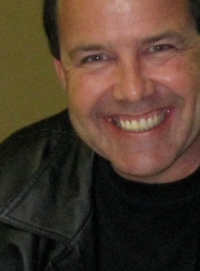The Story We Write For Ourselves
With Marc Schooley
What advantage does man have in all his work which he does under the sun?
-Eccl. 1:3

 This year, as with every year past, I find myself busier than ever. Vanity of vanities, right?
This year, as with every year past, I find myself busier than ever. Vanity of vanities, right?
Hebel (vanity, transitory, a mere breath) was also the name of Adam’s second child in the Genesis account. Abel. Transitory upon transitory, the Preacher says.
Behold, Thou hast made my days as handbreadths,
And my lifetime as nothing in Thy sight;
Surely every man at his best is a mere breath.-Ps. 39:5
I think it’s a factor of the economy, but over the last year I’ve seen a few cases of discouragement among established writers. Not that they’ve jumped off a cliff, just that there’s a lot of discussion over the workload and the possibility that McDonald’s may have more job security and better pay. From time to time, I see a sense of discouragement over achievements that have proven to be more transitory than hoped.
So why am I working so hard at this stuff? Why do any of us believe in what we do?
Ecclesiastes happens to be a shared favorite book of the Bible between us. Perhaps it’s because it’s the one that’s written to the atheist worldview, albeit with a surface veneer of Jewish cultural practice overlaid. It addresses the materialist, existential worldview that exalts the doings of this life as the only immortality there can be.
There’s actually a lot of truth to that worldview, from the perspective of this earth. As far as anyone in this world is concerned, all that’s left of us after death is the idea we create of ourselves for others to encounter. So did we leave a legacy of waste and self-amusement? Were we achievers for the Lord? Does our example do the talking for us? Did we leave a good story behind for others?
Have we bought the earthly outlook—that the persisting idea of ourselves is the thing which matters most after death? That life is about the story we write for our posterity?
It’s interesting what Solomon says about legacy.
So I hated life, for the work which had been done under the sun was grievous to me; because everything is futility and striving after wind. Thus I hated all the fruit of my labor for which I had labored under the sun, for I must leave it to the man who will come after me.
And who knows whether he will be a wise man or a fool? Yet he will have control over all the fruit of my labor for which I have labored by acting wisely. This too is vanity. –Eccl. 2:17-19
This life, whether for good or for evil, for work or fun, is wearying. We grow old, and we wear out and pass away, and the winds turn onward, always circling. And the world turns onward, striving after them. All is transitory, striving in circles for something that can’t be caught in our hands.
The Preacher sought to find delightful words and to write words of truth correctly. The words of wise men are like goads, and masters of these collections are like well-driven nails; they are given by one Shepherd. But beyond this, my son, be warned: the writing of many books is endless, and excessive devotion to books is wearying to the body. –Eccl. 12:10-12
And that’s a truth that demands the question: Over what do we wrangle in our time here? Is it a godly sacrifice we offer in our devotion to the things we place foremost?
Vanity of vanities. Hebel. Transitory, a mere passing breath, without weight or final import. There’s no arguing that we are transitory, that God’s Word is what stands forever.
But there’s no dichotomy between the two.
God has chosen the foolish things of the world to shame the wise, and God has chosen the weak things of the world to shame the things which are strong, and the base things of the world and the despised, God has chosen, the things that are not, that He might nullify the things that are, that no man should boast before God. -1 Cor. 1:27-29
Oh, the goodness we try to create for our legacy. We fight to create the best possible idea of ourselves for those who will encounter it later. But when we see morality, or Scripture, or our own personal guidelines for living, as nothing but an abstract ideal, we forget something: We are living beings. Made for life. And there is a greater existence which goes beyond the transitory vanities of this moment.
If the Christian life is nothing but an abstraction, if our existences can be summed by the idea we create of ourselves, then how will we worship when faith becomes sight? If we believe in the sacrifice of Jesus Christ for our sins, then it’s not an idea, but that other existence on a farther shore, which we now live during our time in the body. We live to God.
What am I working for? Well, some ministry stuff and some paid stuff. Writing three books at once. Getting my act together to go to a writing conference in 2012. Building a business that perhaps my children may want someday.
All of that and none of it. What I’m doing, deep down where it can’t be seen, is having a conversation with God.
Lord, this seems important. Guide my words today.
Father, this is a fascinating thing to learn to do. Can I?
Hey…this thing my writing partner said, it really made me think about who I’m really supposed to be. Did You really mean for it to be this way? I’m free to be like that?
And the answers come. There’s a place where I know God in a way that’s unique to me. And where God knows me as only He does, permanently. I will also give that person a white stone with a new name written on it, known only to the one who receives it. Rev 2:17
What we do today is a vehicle for interaction with an impending eternity.
In reality, I have no idea of myself beyond death. I just know what I won’t be: some goofy cherub sitting on a cloud and strumming a harp while a nondescript, unanchored background drifts endlessly past.
I am who I am. I can say this because God is who He is. It hasn’t yet appeared what I will be. There is a world to come of which, for all our speculations and all our faith, we have no idea.
By faith Abel offered to God a better sacrifice than Cain, through which he obtained the testimony that he was righteous, God testifying about his gifts, and through faith, though he is dead, he still speaks. –Heb. 11:4
Thank God that the New Testament is the infallible interpreter of the Old Testament (the only such interpreter we have, mind you), for here the writer of Hebrews demonstrates that in God even the transitory is transitory. For Abel certainly obtained permanence through and by the power of the One who is permanence Himself. The One in whom no shadow of turning exists. The One who is the same today, tomorrow, and forevermore.
What advantage does man have in all his work which he does under the sun? Well, that all depends on what he does, now, doesn’t it?
Now all has been heard;
here is the conclusion of the matter:
Fear God and keep his commandments,
for this is the duty of all mankind.
-Eccl. 12:13
——
C.L. Dyck and Marc Schooley have variously worked together as editor and client, critique partners, co-bloggers and mutual support team in navigating the literary business.






































Sorry I don’t have anything to add. This is such a lovely post. One thing the OT will definitely teach you is that God is not offended by our honesty with him, and that he’s quite aware of our frailties and mortality. But I think that’s why he make such a point in Scripture to keep us focused and encouraged.
A friend of mine quoted her pastor at the time once from one of his sermons, “Death follows us close” – the whole idea being on a legacy.
For myself, I think if I get there and God and I greet each other like old friends, it’ll be enough.
Again, thanks much.
“What we do today is a vehicle for interaction with an impending eternity.”
Wow. Just, wow.
Thanks, on both comments.
Kaci, death does indeed follow us close…but along with that, one of Marc’s recurring focuses that has really inspired my perspective is his take on “the real.” I’ve also heard him speak on it, which is a fabulous experience, but here’s the readable version: http://www.marcschooley.com/blog/?p=546
“God is not offended by our honesty with Him”
So true. If anything, it’s the opposite: what offends God is when we try to pretend He doesn’t see all those truths about us, so that we can pretend we don’t see them either. Convicting stuff, that OT.
“There’s a place where I know God in a way that’s unique to me. And where God knows me as only He does, permanently.”
Only God knows the deep places inside of me. No one else will, not even my husband. He knows every thought, every feeling, every hurt, every question.
Excellent post 🙂